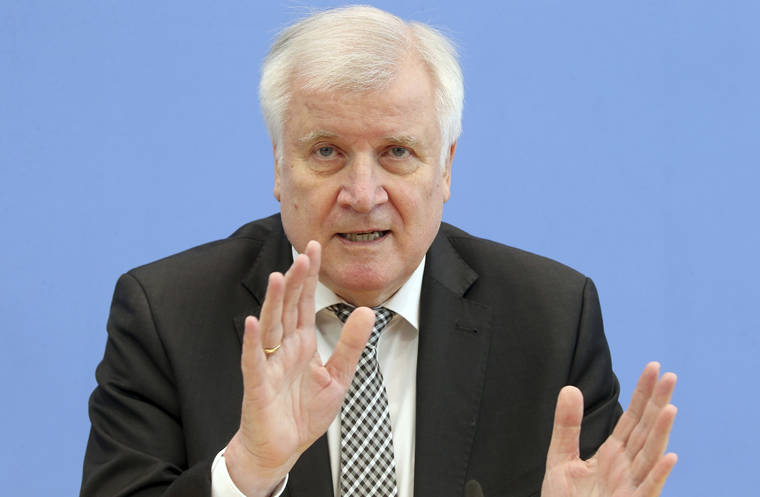BERLIN — The number of anti-Semitic and anti-foreigner incidents rose in Germany last year, despite an overall drop in politically motivated crimes, according to statistics released Tuesday.
The Interior Ministry’s latest annual report on politically motivated crimes showed that anti-Semitic incidents rose 19.6% to 1,799 from 1,504 in 2017, with 69 classified as acts of violence.
Of the total, 1,603 were committed by far-right perpetrators, while 102 and 52 respectively were listed as crimes committed out of “foreign ideological” or “religious ideological” grounds.
Events characterized as anti-foreigner crimes increased 19.7% to 7,701 amid an overall uptick in hate crimes to 8,113 from 7,913. The far-right was responsible for 7,064 of the anti-foreigner crimes, and 7,153 of the overall hate crimes, according to the report.
Germany defines politically motivated crimes as those that constitute a particular threat to the country’s democracy. They include a wide range of crimes, including acts by political extremists and animal rights activists that deliver their message physically..
Overall, the report showed Germany registered 36,062 politically motivated crimes in 2018, down 8.7% from 2017. The majority, 39.1%, were classified as “propaganda” crimes, such as using the swastika and other banned symbols. Others crimes motivated by politics included threats, incitement, disturbing the peace, arson, assault, kidnapping and murder.
Holger Muench, head of the Federal Criminal Police Office, said it was good news that politically motivated crimes were down overall but “of particular concern” to see a rise in reported hate crimes.
Right-wing crimes made up most of the incidents at 20,431, down 0.4%. Of those, 1,156 involved violence, a 2.3% increase from a year earlier.
Left-wing crimes dropped 18.4% to 7,961 incidents. Of those, 1,340 were violent, a decline of 31.9% from 2017. More than half of the violent offenses were against police.
Crimes committed for reasons of religious ideology dropped 46.9% to 586, with a strong drop in the number of suspects accused of membership in a terrorist organization from 316 to 144.
Still, the Interior Ministry warned that Germany remains “a focus of Islamic terrorists and Islamic terrorism remains a large danger for its internal security.”
Authorities also recorded a sharp increase of 53.8% of crimes committed for “foreign ideological” grounds, from 1,617 to 2,487, primarily attributed to a spike in strife between groups from Turkey involved in conflicts in their home country, including the Kurdistan Workers’ Party, or PKK.
“Germany is a sounding board for conflicts around the world, in particular the crisis regions in the Mideast,” said Interior Minister Horst Seehofer. “The state will continue to do everything possible to ensure foreign terrorist or extremist organizations do not use Germany for their actions. That applies especially for the PKK.”





